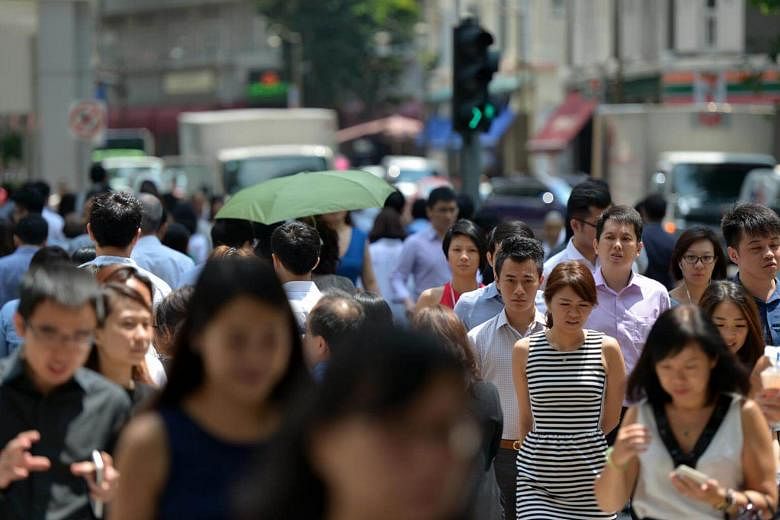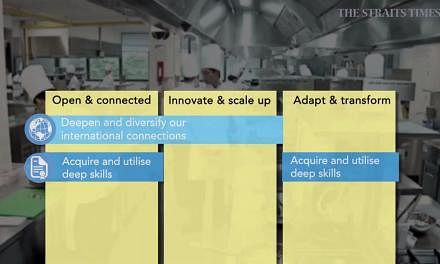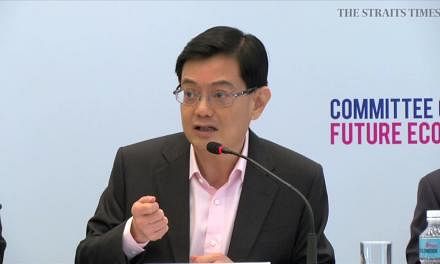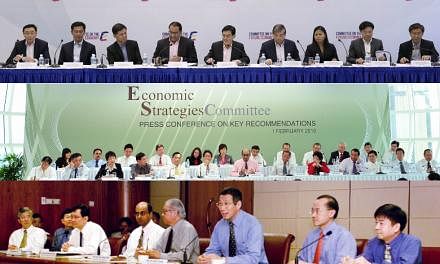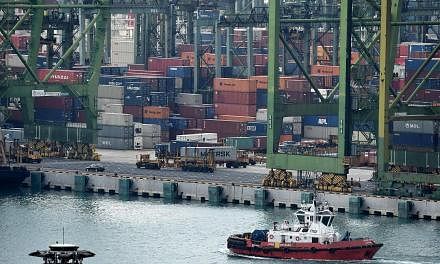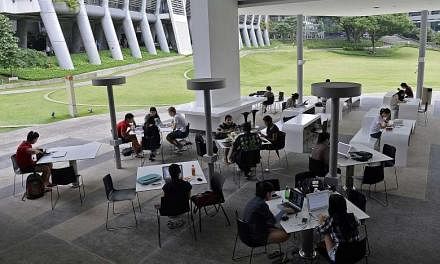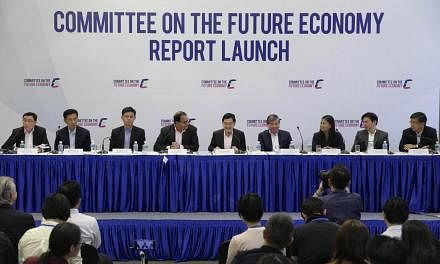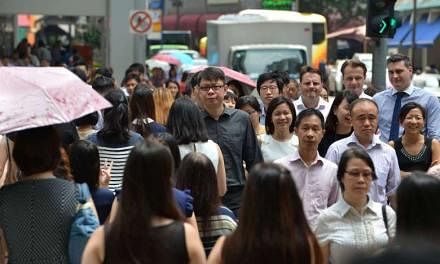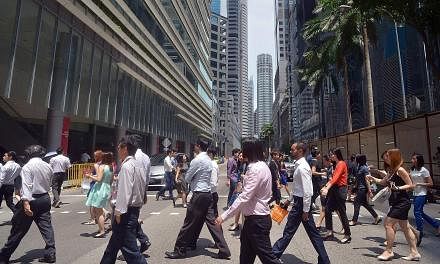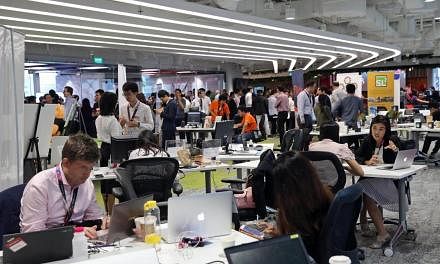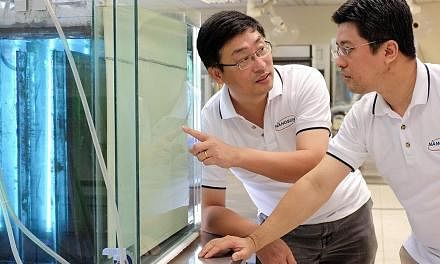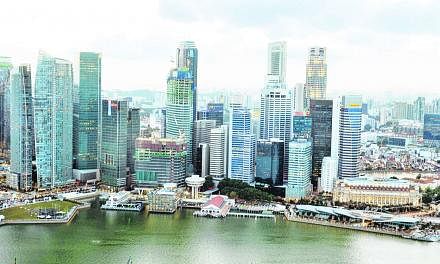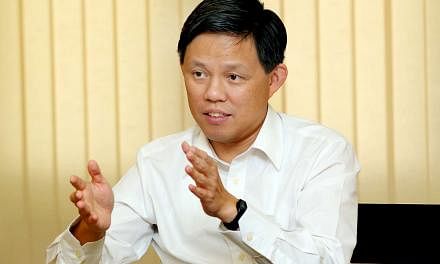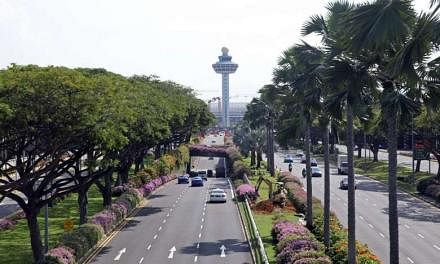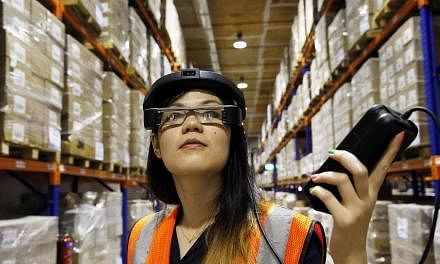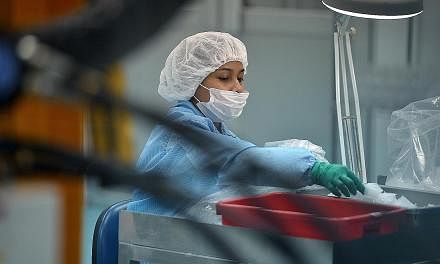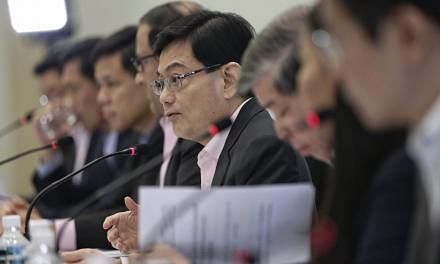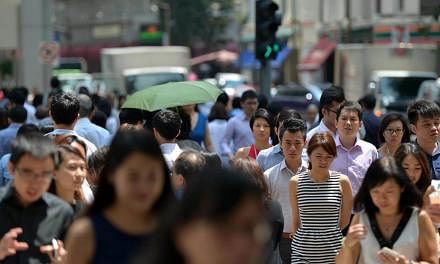Strategy 7: Partner one another to enable growth and innovation
The Government could spur innovation among local firms by issuing challenges to solve specific problems, while unions should do more to help workers retrain.
These were just a few of the various recommendations made by the Committee on the Future Economy (CFE) yesterday as it encouraged everyone, from workers to the Government, to strengthen their partnerships to ensure continued growth and innovation in Singapore in the years to come.
"Our path ahead is uncharted. Unpredictable economic, technological and geo-political changes are affecting life and business in every country, and will require each of us to rediscover our place in and value to the world," the committee said.
And that journey of rediscovery will require Singaporeans to take ownership for acquiring, developing and using their skills, while companies must seize opportunities and build capabilities, it added.
Meanwhile, trade associations and chambers should seek shared solutions for their members and lead sector-level initiatives.
A good example, the committee noted, was one set by the Singapore Manufacturing Federation, which formed a collaboration with several partners to set up an Enterprise Europe Network Singapore Centre.
Launched last year, the centre facilitates Singapore companies' access to technological know-how, intellectual property and partnership opportunities within Europe.
Unions, too, have a vital role to play in Singapore's future and must continue to encourage and help Singaporeans prepare for the jobs of the future, the committee said.
For example, they could work with the Government to place workers in new jobs, particularly the most vulnerable, suss out market needs and help their members develop relevant skills.
Meanwhile, the Government has to face the future by creating a regulatory environment that supports innovation and risk-taking, the committee said.
This means regulating in a "forward-looking manner". For example, identifying and focusing on areas with high potential for technological and industry innovation, where regulation needs to keep pace.
National Development Minister Lawrence Wong, a committee member, said supporting innovation does not mean the Government will implement fewer or no regulations on new and disruptive industries.
"It is not about less but smarter, more effective regulation - regulations that are pro-business but at the same time balance the very legitimate needs of different stakeholders, including Singaporeans."
The head of the School of Engineering and Technology at PSB Academy, Dr Liau Vui Kien, noted that this will be no mean feat.
"In spite of accelerations in technology developments, scientific breakthroughs and disruptive platforms... Singapore's limitation as a small nation with a finite labour and market size places it in an uncertain, often reactionary position," he said. "We will have to examine the pros and cons, find the right balance between regulation and innovation to facilitate the growth of these technologies."
The Government should also develop a greater capacity in the public service to encourage innovations, the committee said, noting some agencies have already led the way, such as the Monetary Authority of Singapore, which has facilitated innovation while regulating the emerging financial technology sector.
The Government could also support innovation through procurement, the committee noted.
"The Government should consider using lead demand more systematically to support the development of promising industries, especially where this coincides with our own strategic national needs."
And so the Government could issue public sector challenges to encourage firms to explore, pilot and co-develop innovative solutions to specific problems, and set aside resources, such as manpower and funding, to spur innovation procurement. It could also expand accreditation schemes to support promising and innovative start-ups and small and medium-sized enterprises to overcome the lack of track record in some cases, and build trust in our enterprises.
In order to keep encouraging effort and enterprise and creating good jobs in the years to come, the committee also said Singapore's tax system would have to be reshaped.
"Going forward, domestic and global changes will require us to review and refine our tax policies. These include rising social expenditure needs due to ageing, and growing momentum for international tax developments."
Even so, the committee called on the Government to maintain a tax regime that is broad-based, progressive and fair, while remaining competitive and pro-growth.
Finally, as Singapore's economy grows, the Government should not overlook the quality of the environment, the committee said.
"We need to be good stewards of our precious physical resources, so that we can maintain a high quality living environment in Singapore for generations to come."
